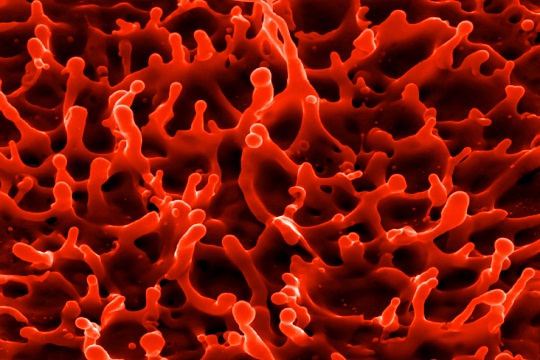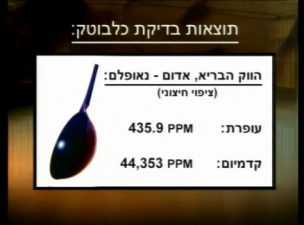 Researchers at Tel Aviv University (TAU) pave the pay for a new era in nano-technology. Say hello to transistors made of blood, milk and mucus.
Researchers at Tel Aviv University (TAU) pave the pay for a new era in nano-technology. Say hello to transistors made of blood, milk and mucus.
Blood, milk and mucus proteins could soon replace silicon to produce transistors, which amplify electrical signals and are at the basis of most modern technology. One of the most important benefits of this discovery is that these transistors will be biodegradable.
A team of researchers including students Elad Mentovich and Netta Hendler of TAU’s Department of Chemistry and The Center for Nanoscience and Nanotechnology, with supervisor Shachar Richter and in collaboration with Prof. Michael Gozin and his student Bogdan Belgorodsky, have brought together biology and chemistry to create self- assembling protein-based transistors.
Each organic protein has unique properties and when mixed together can create a complete circuit with electronic and optical capabilities with great flexibility in terms of conductivity, memory storage, and fluorescence.
Blood proteins can absorb oxygen allowing researchers to add different chemicals to adjust the properties of the semiconductor in order to create specific technological properties. Milk proteins, which say strong and stable in different environments, form the fibers which become the building blocks of the transistors. Finally, mucosal proteins have the ability to keep red, green and, blue fluorescent dyes separate, together creating the white light emission that is necessary for advanced optics.
If this can be scaled up, there will be an important revolution in nano- sized technology. First there will be a shift from a silicon era to a carbon era, and these products will be biodegradable, notes Mentovich.
Apple, Nokia and all the big electronic companies could finally help address the growing problem of electronic waste, which is overflowing landfills worldwide.
Second, transistors built from blood, milk and mucus proteins will be ideal for producing smaller, flexible devices. Current technology which uses silicon is 18 nanometers high, but in the case of blood protein, for example, the film is approximately four nanometers high.
This breakthrough in biological electronics could lead to a new range of flexible technologies, screens, cell phones, tablets, biosensors, and microprocessor chips. The hope is that this can lead to a more flexible and eco-friendly technology.
The team at Tel Aviv says they are already working on a biodegradable display, with other electronic devices to follow.
Image of gold nanospikes from Shutterstock



